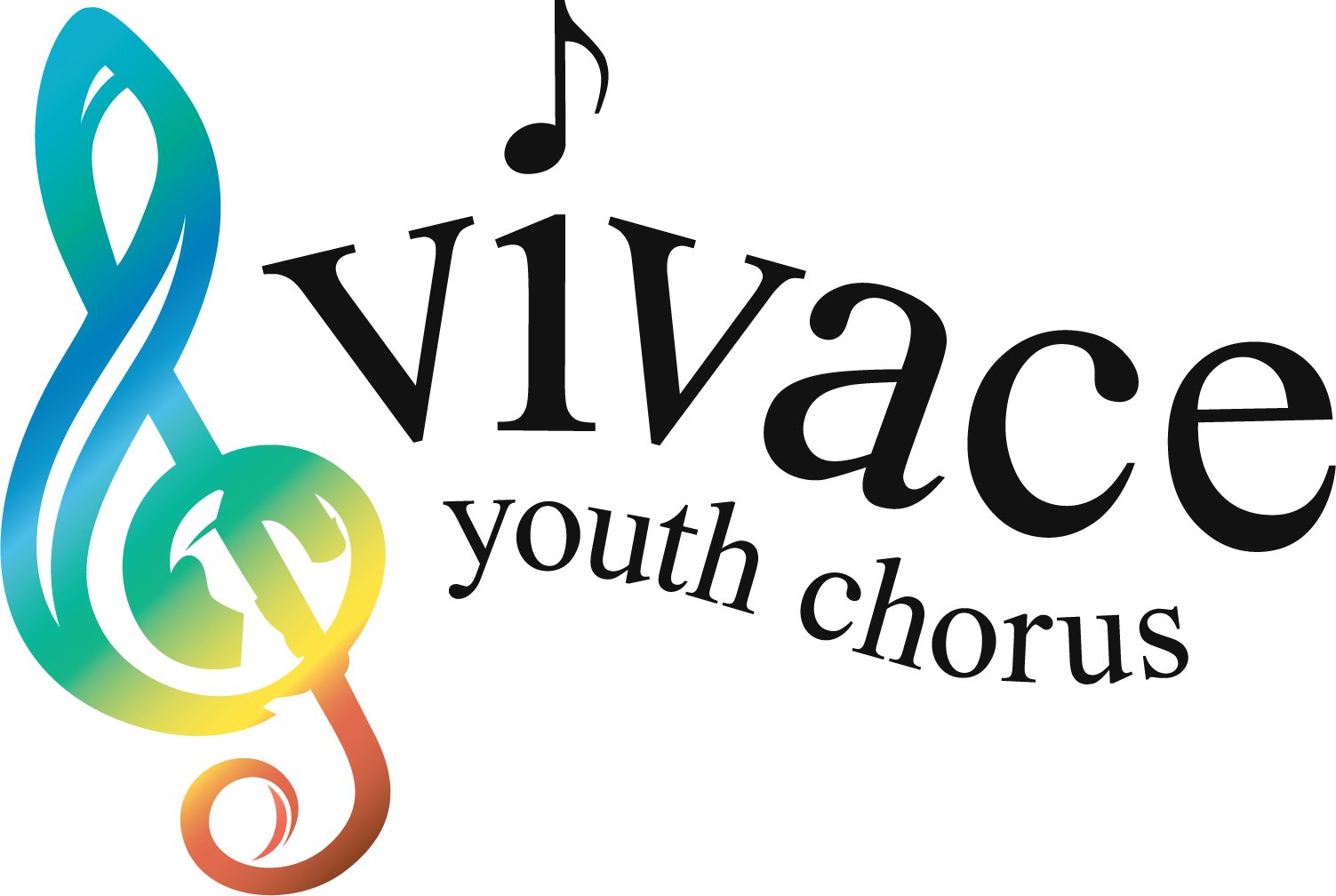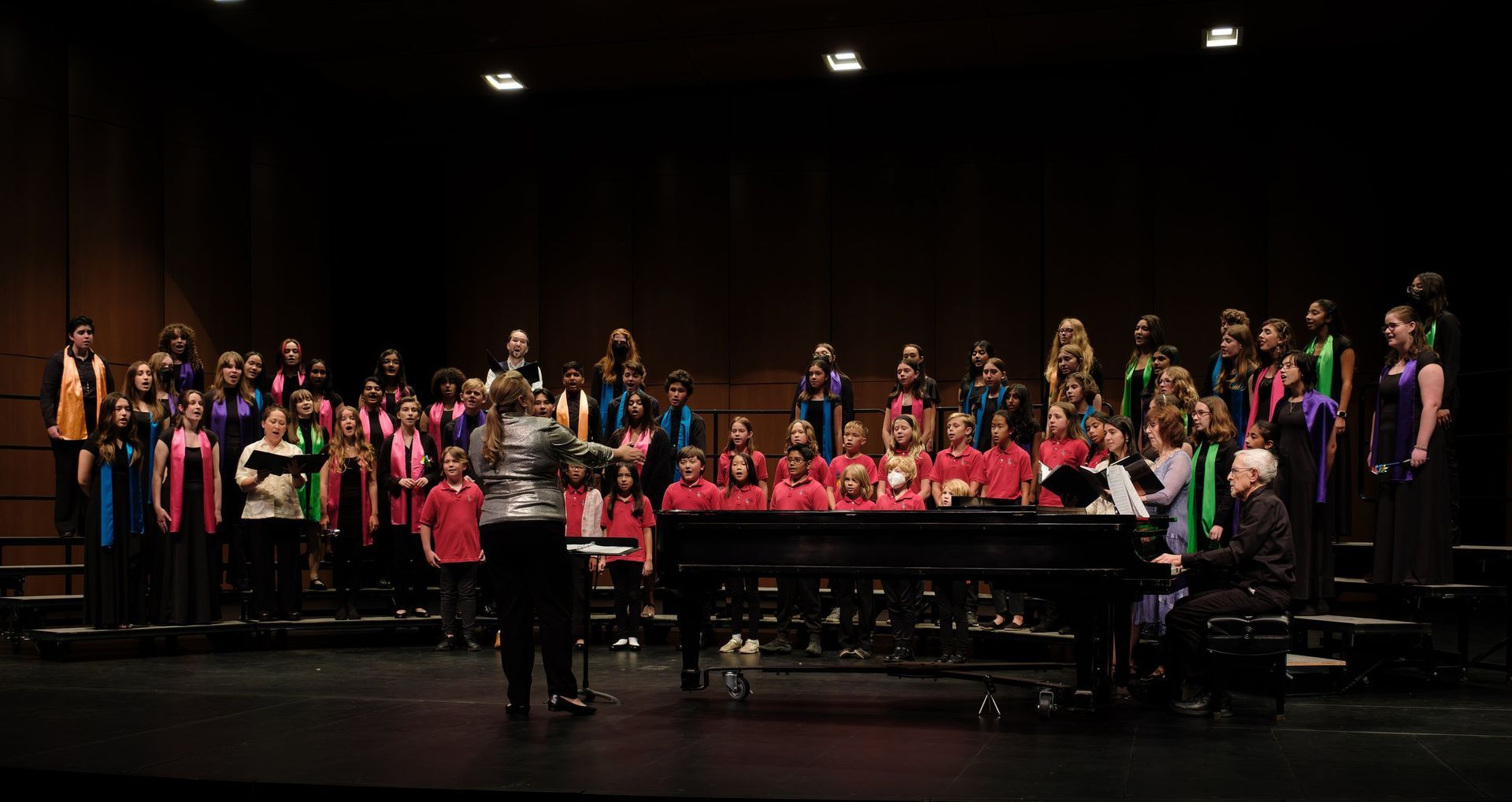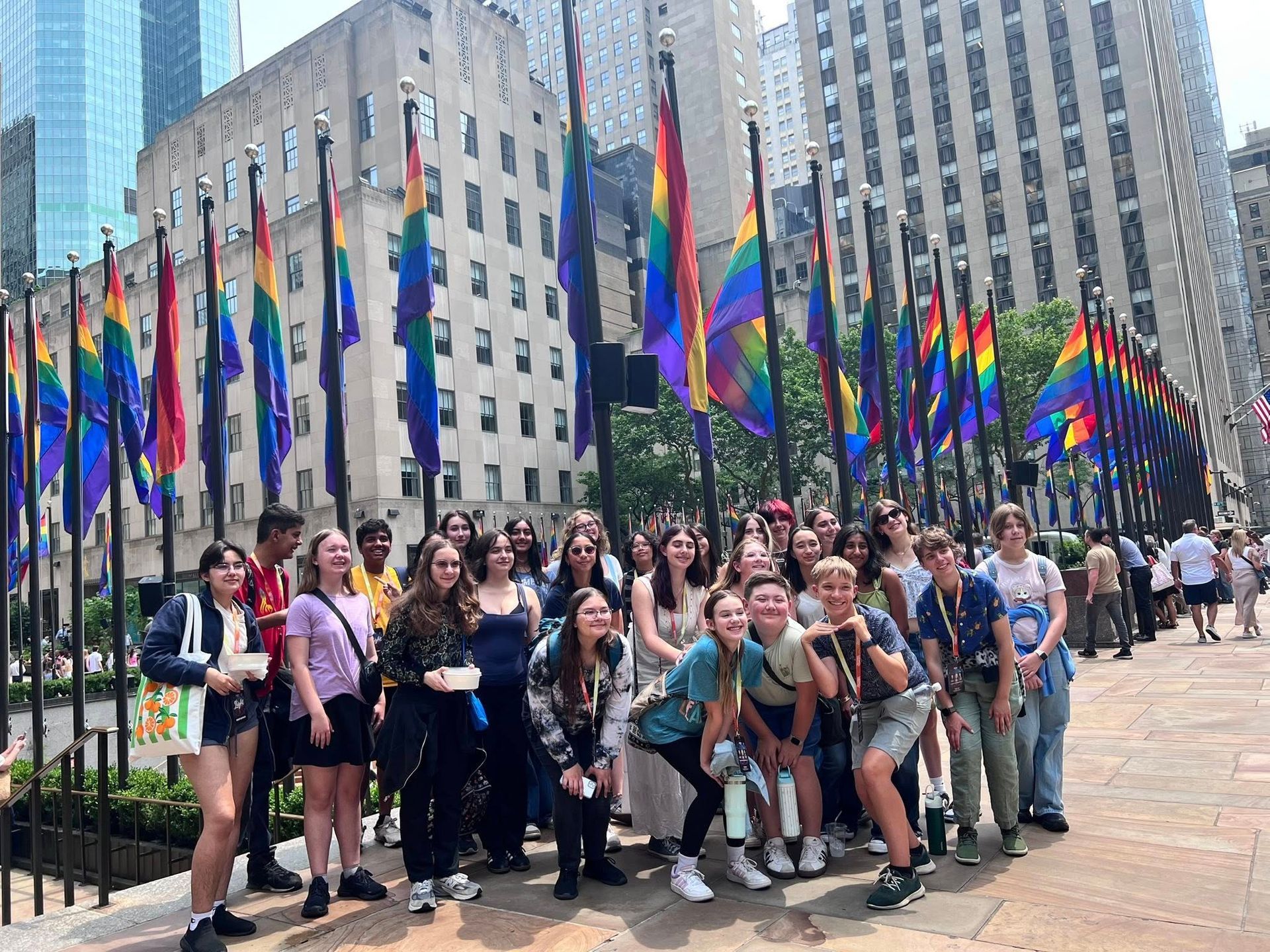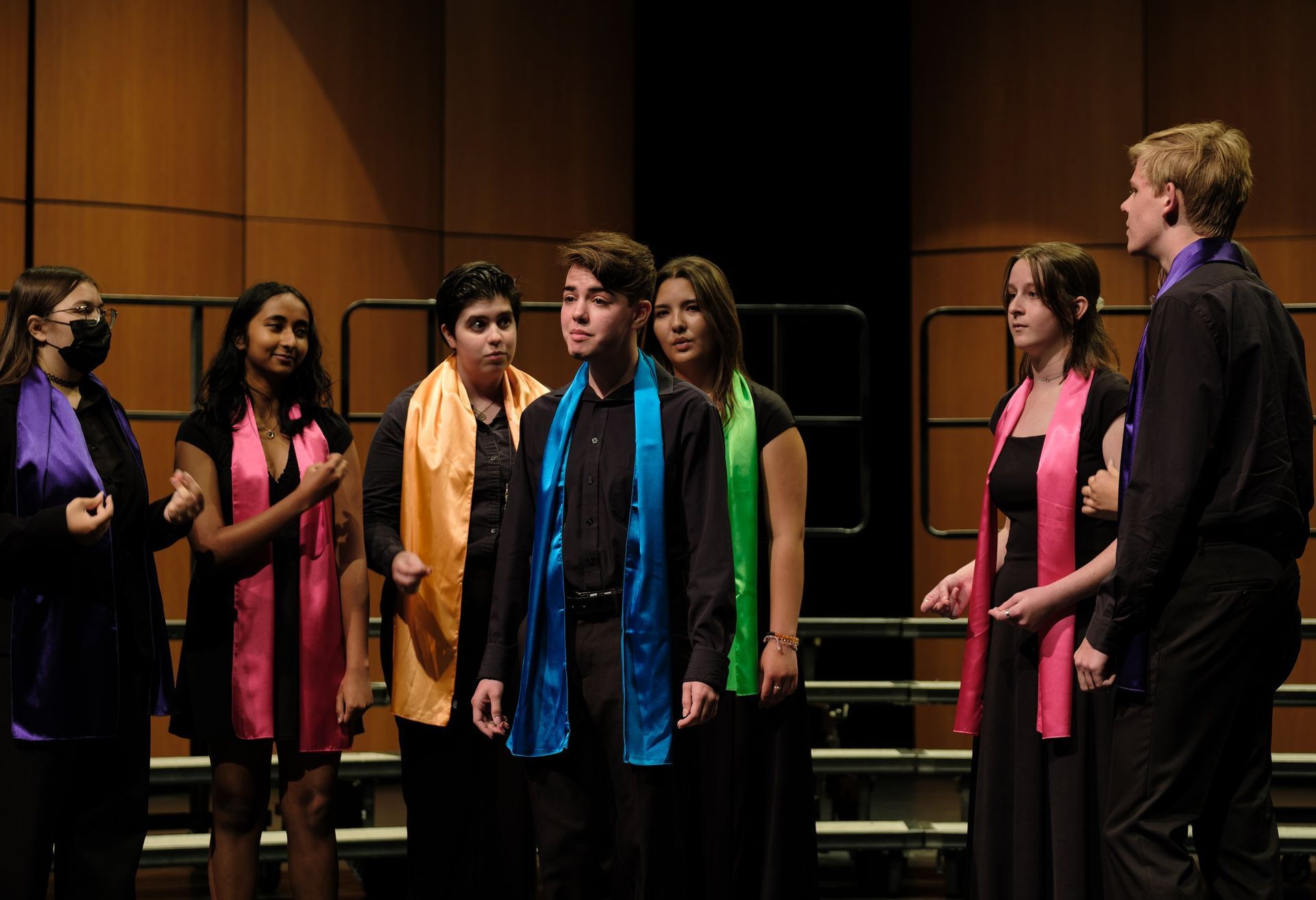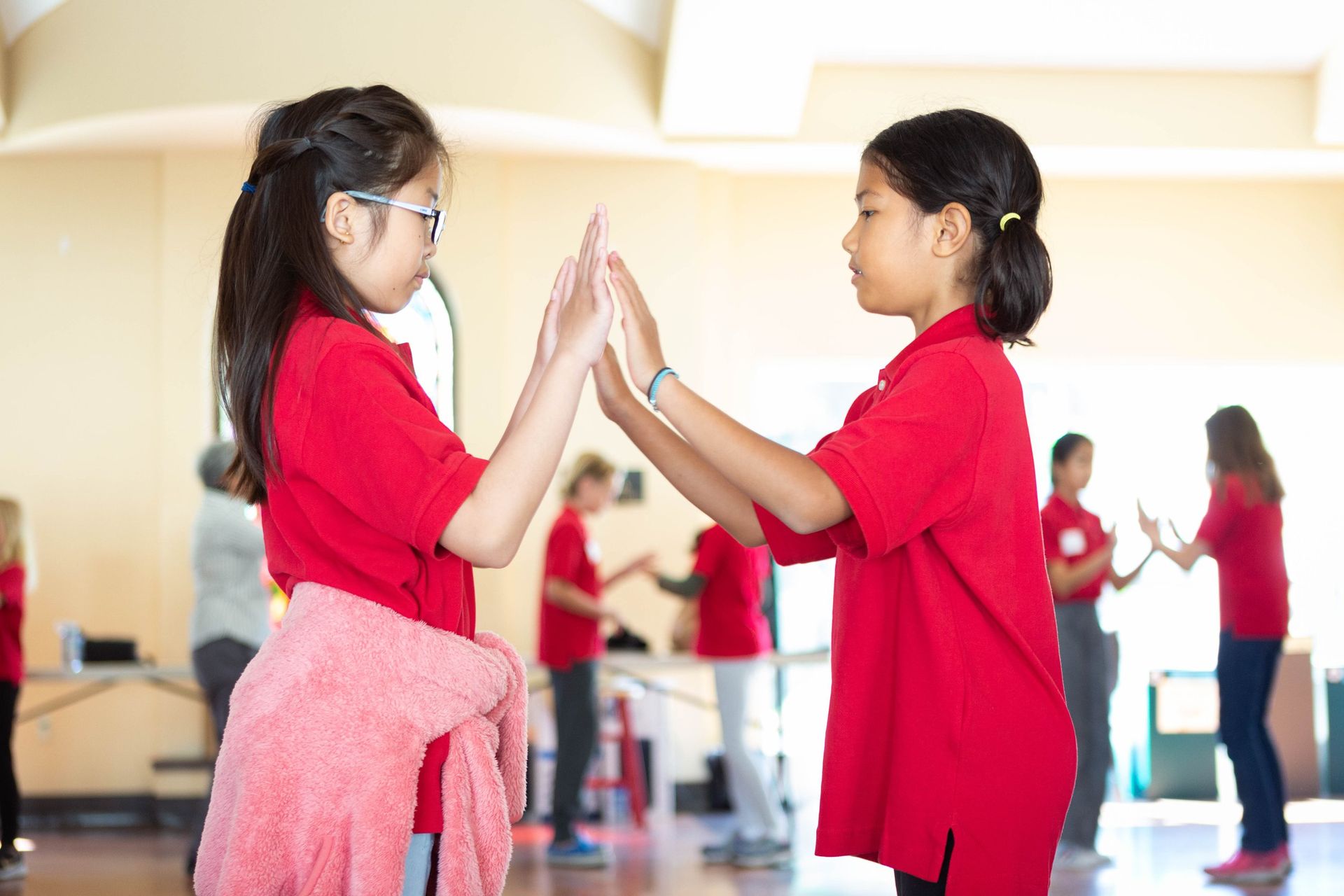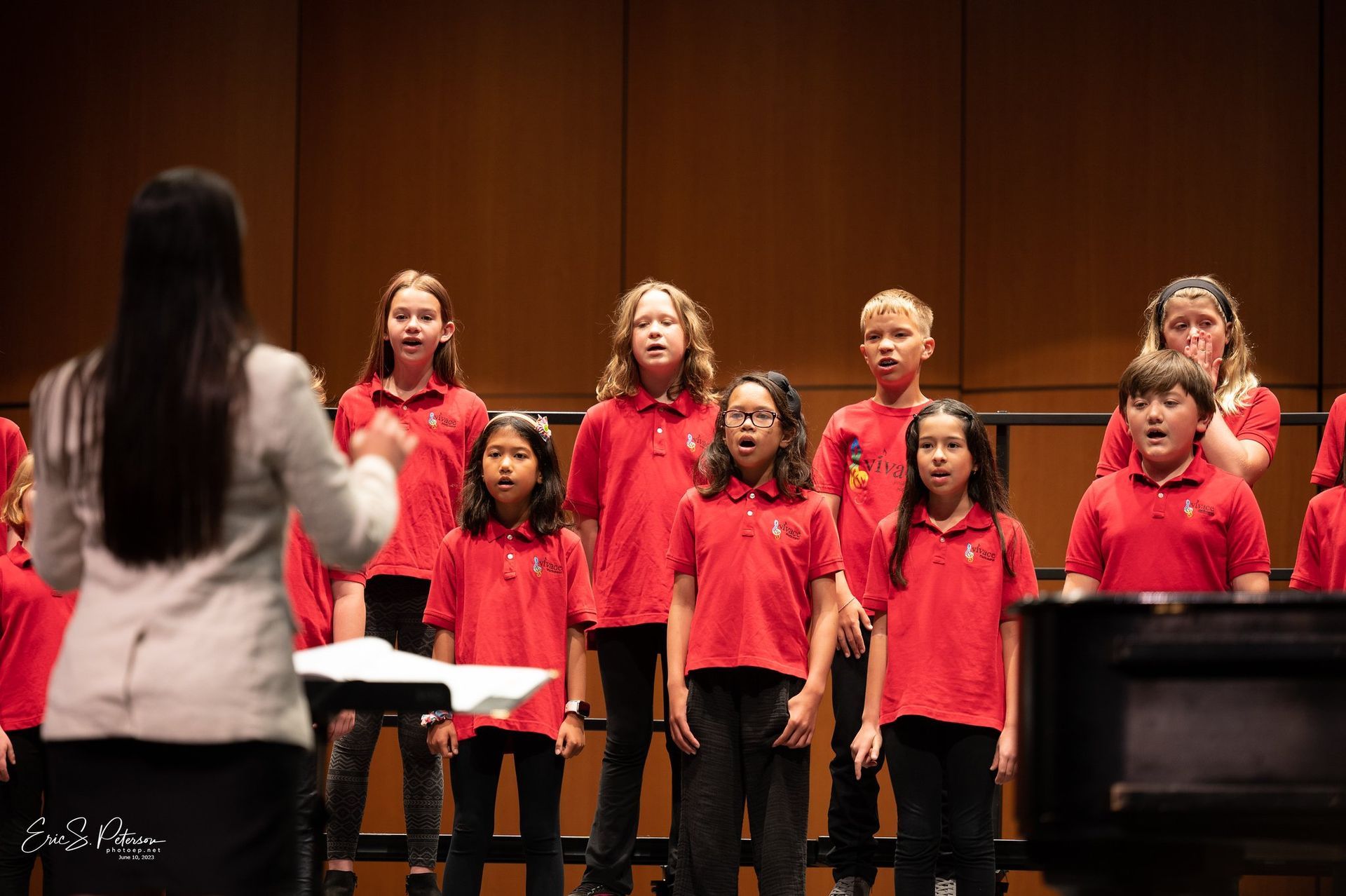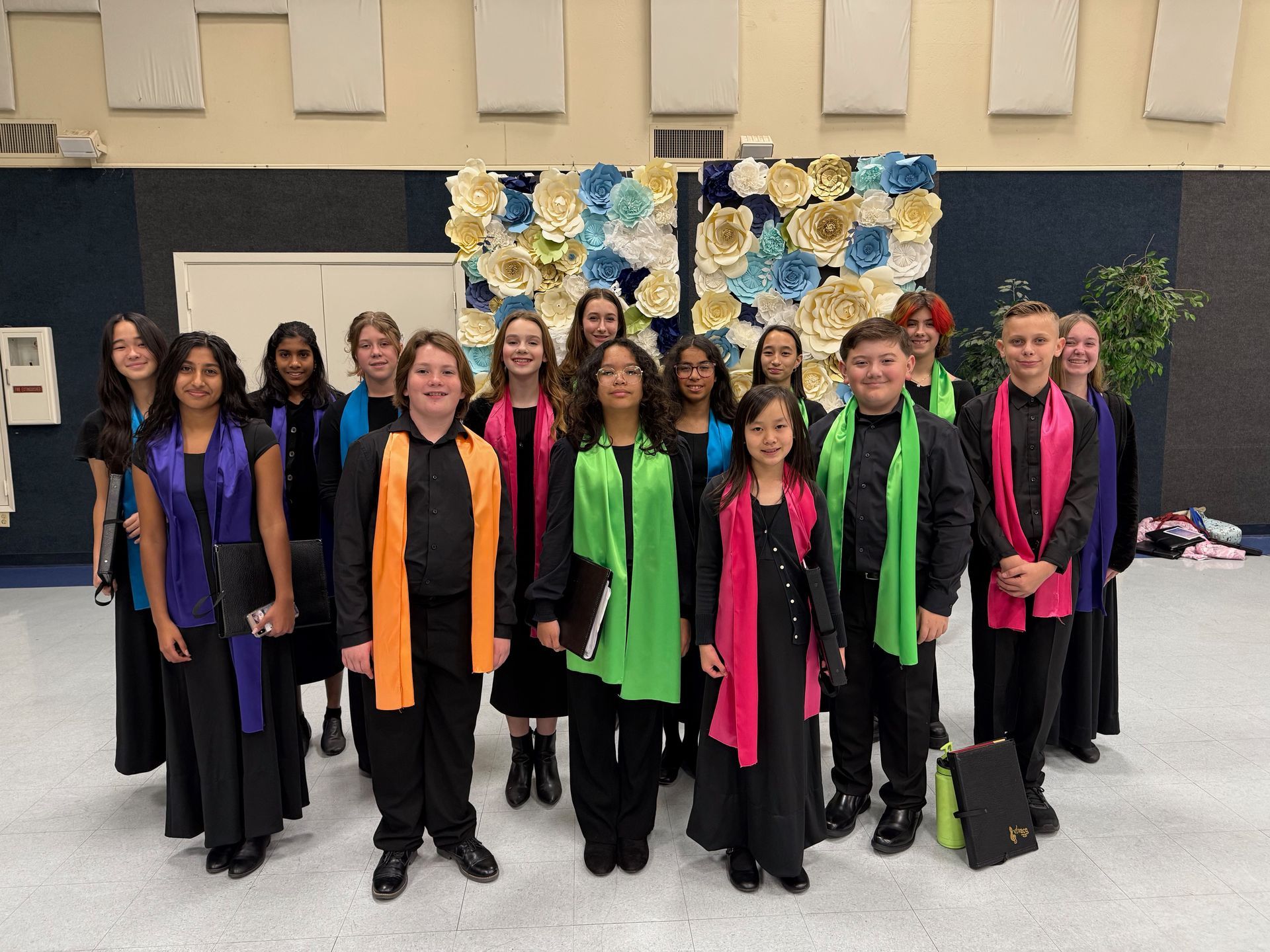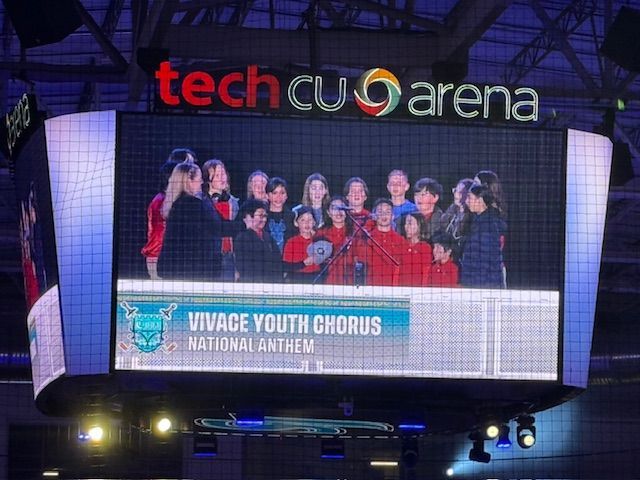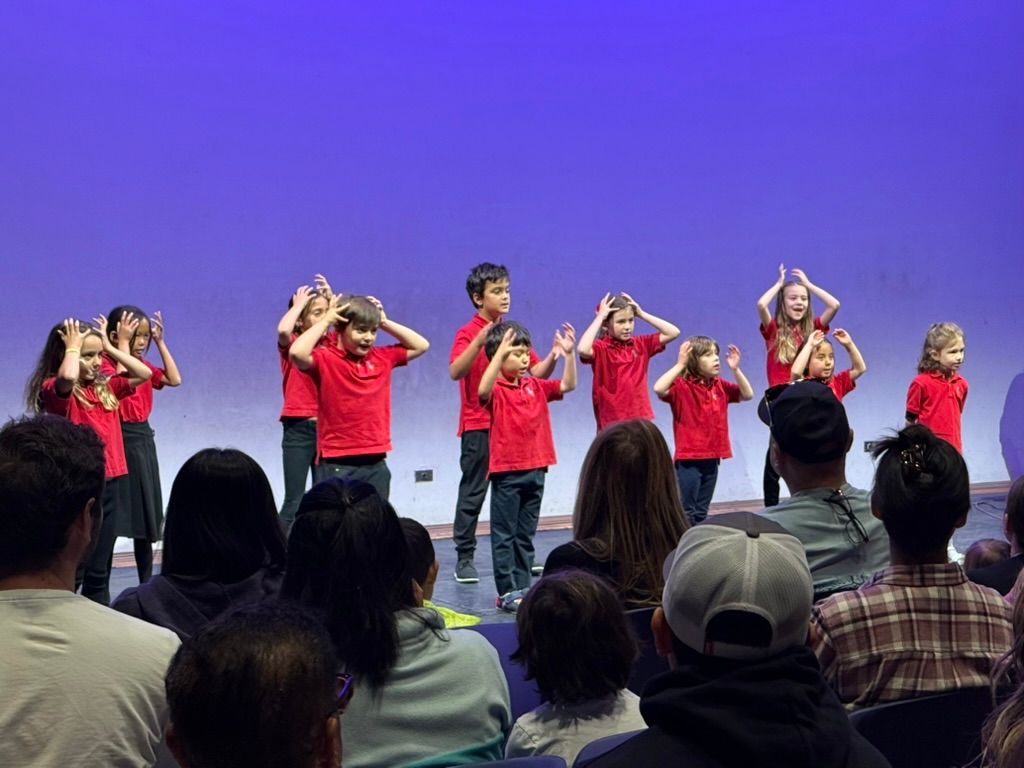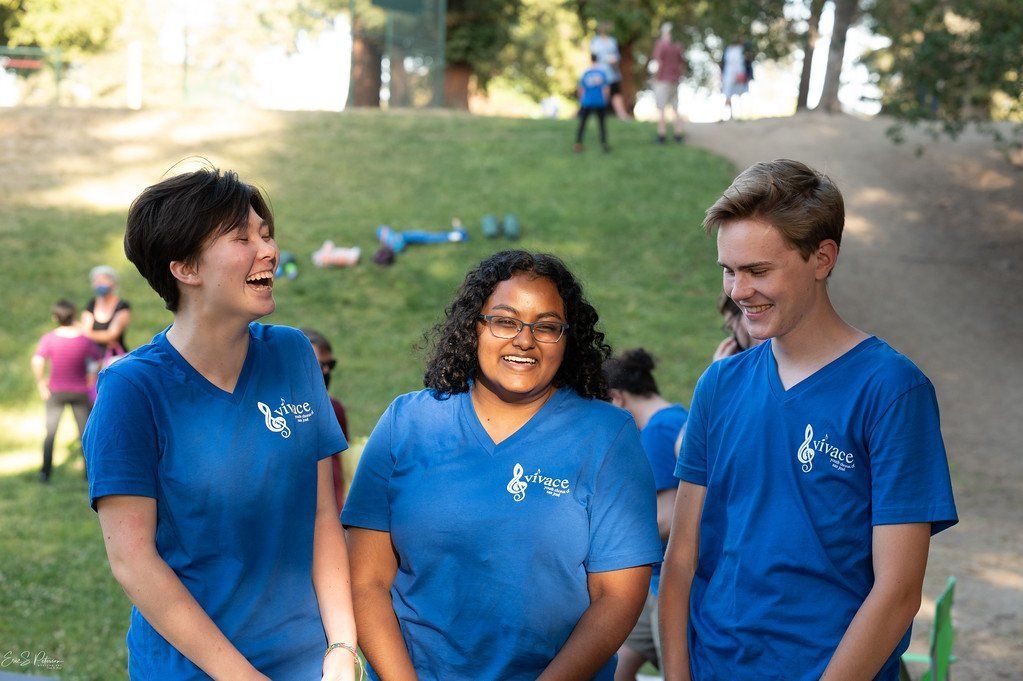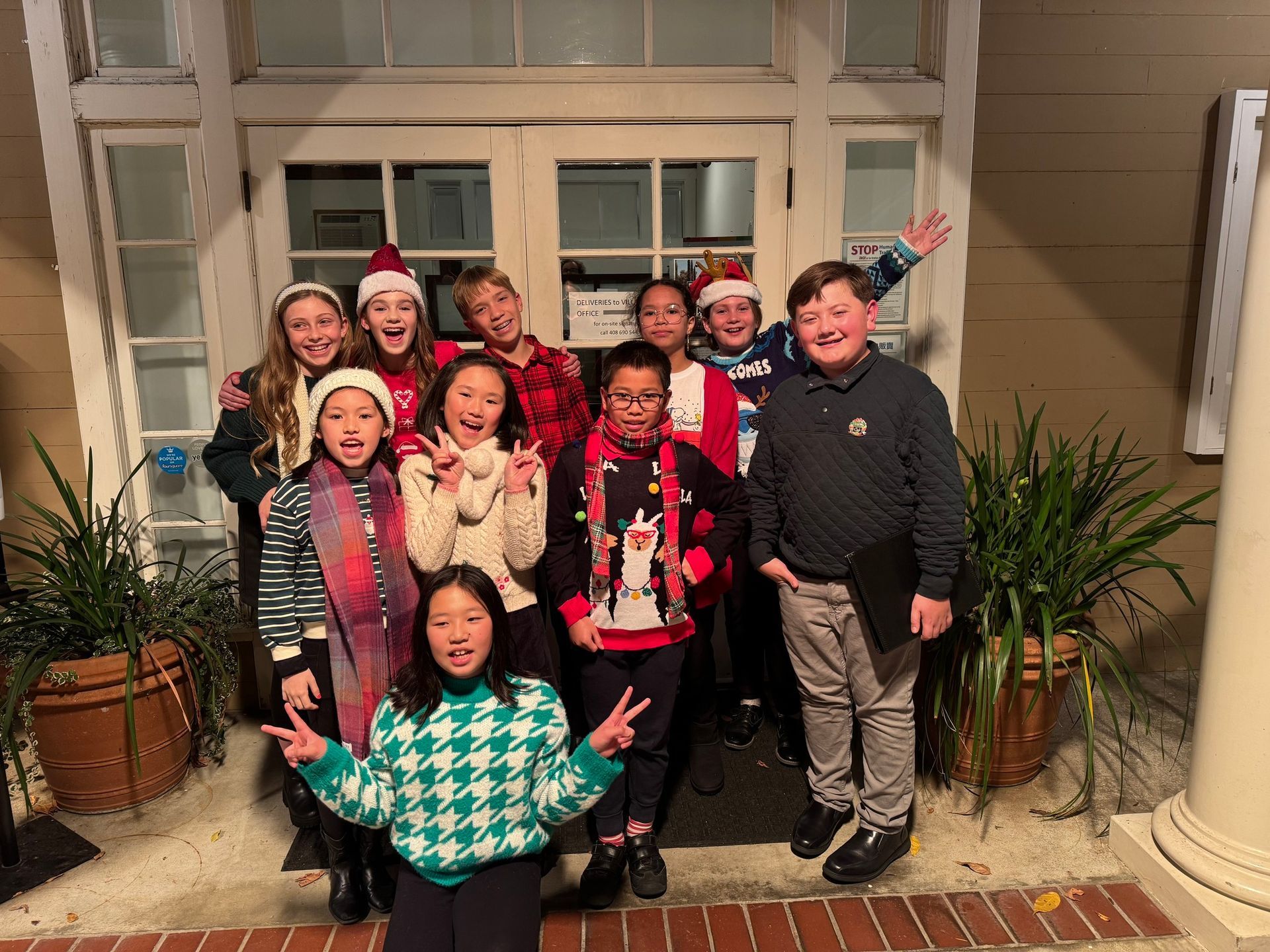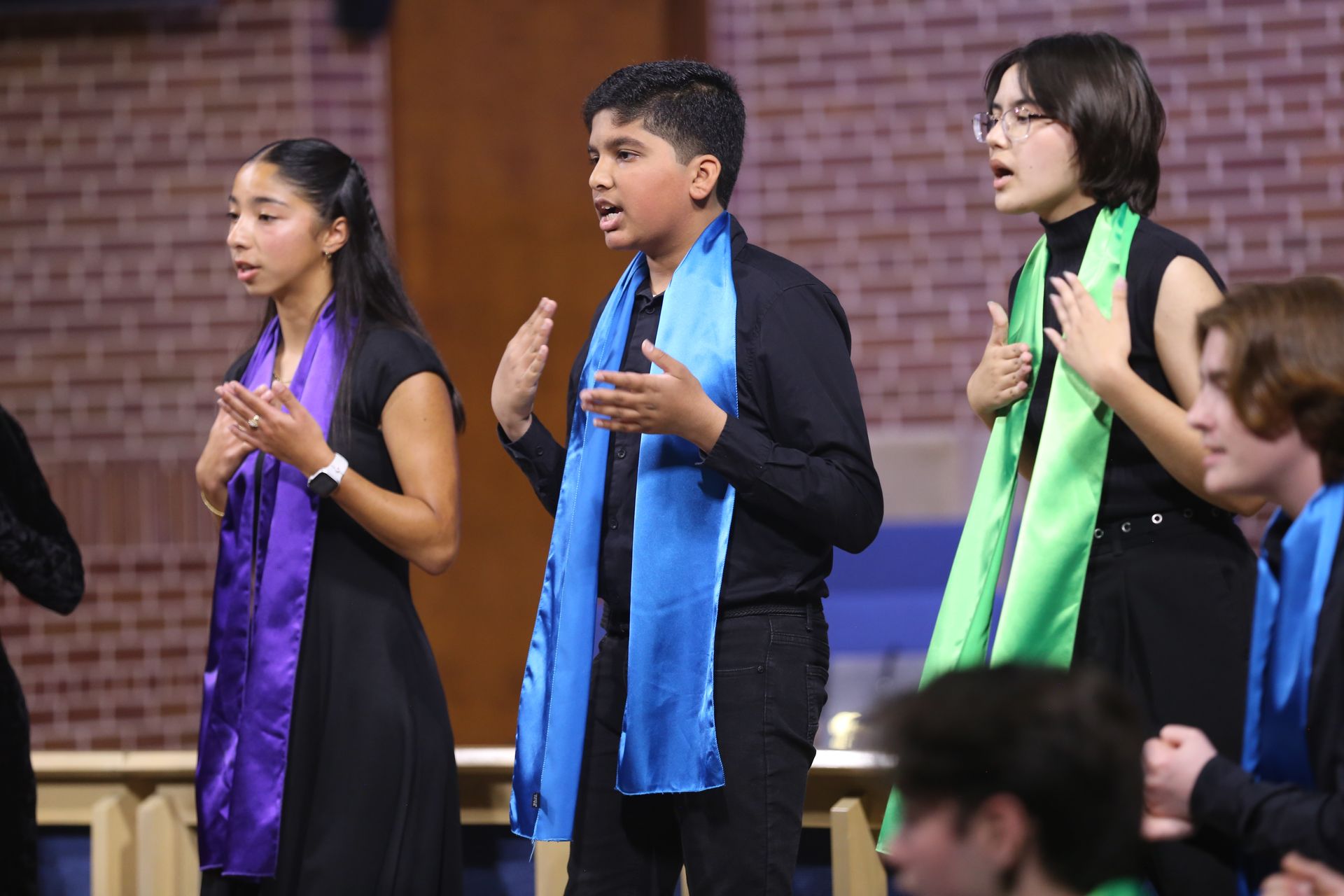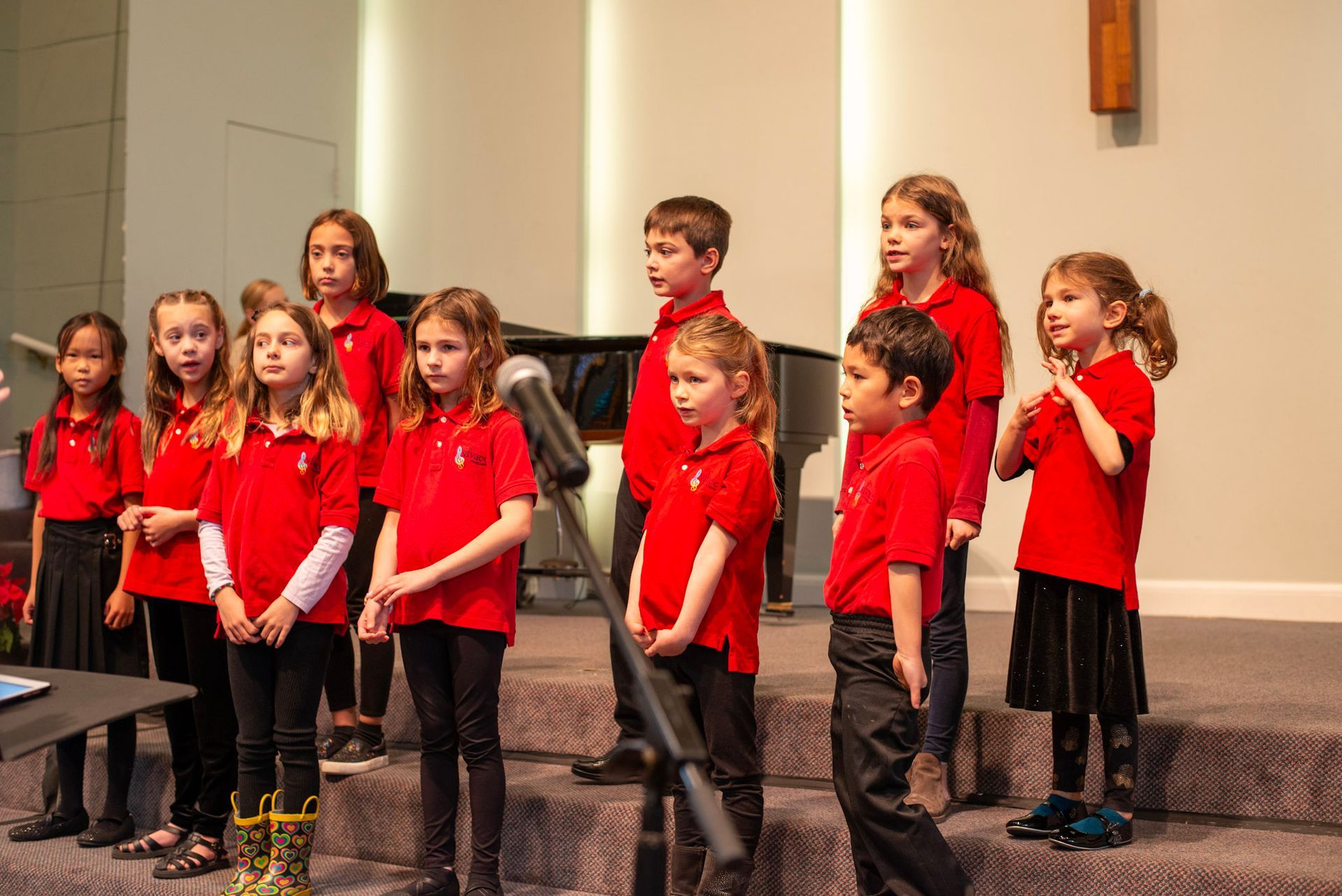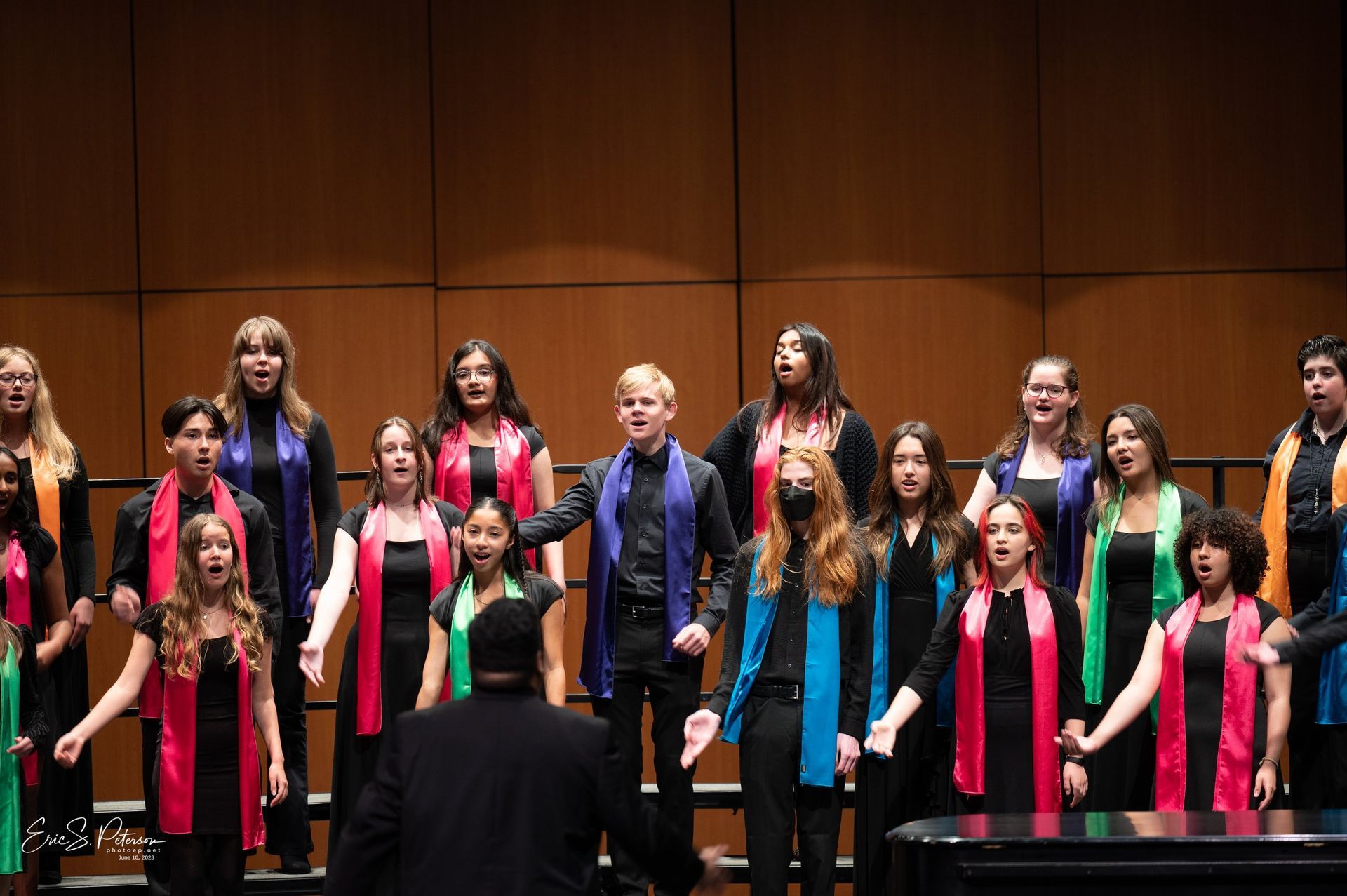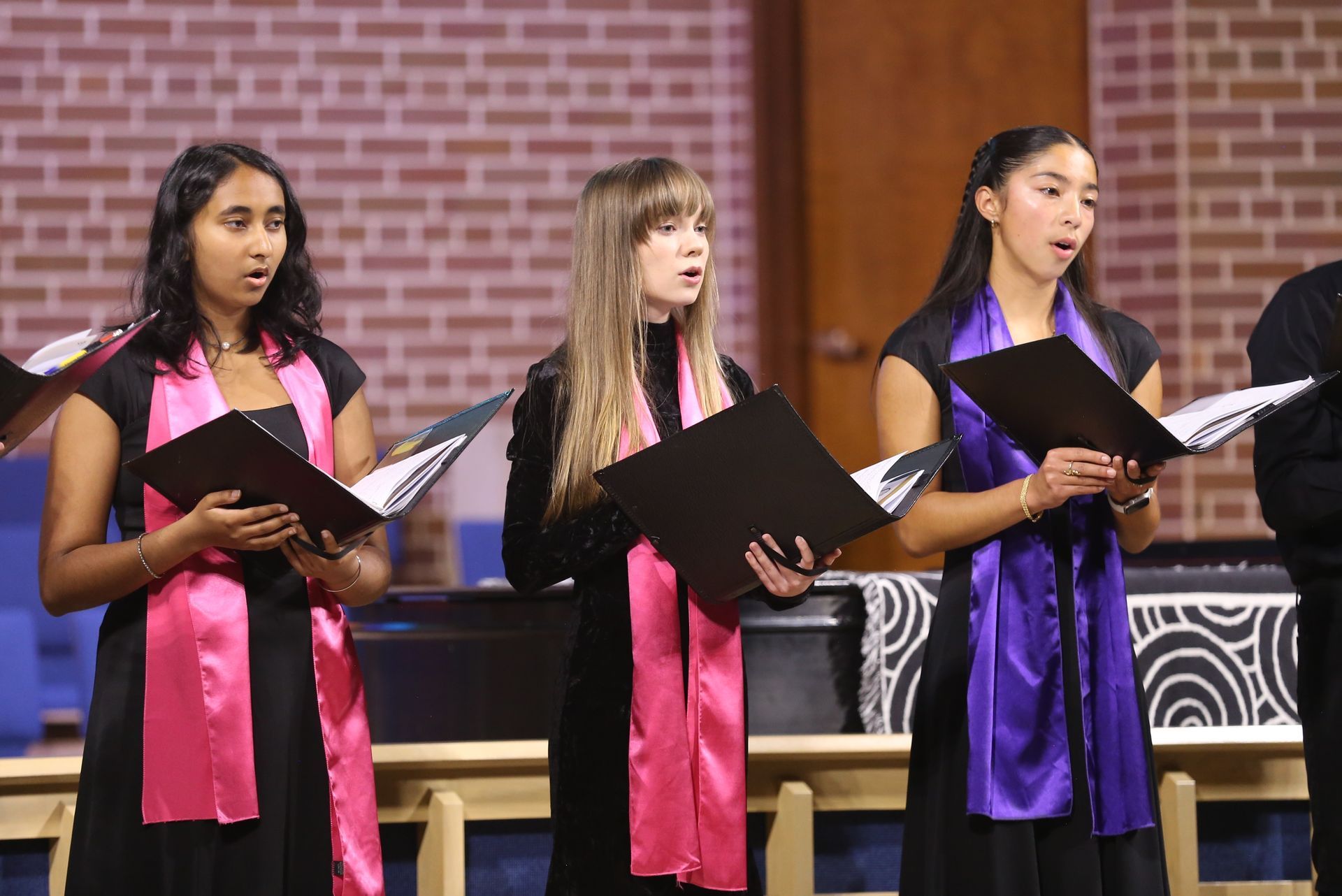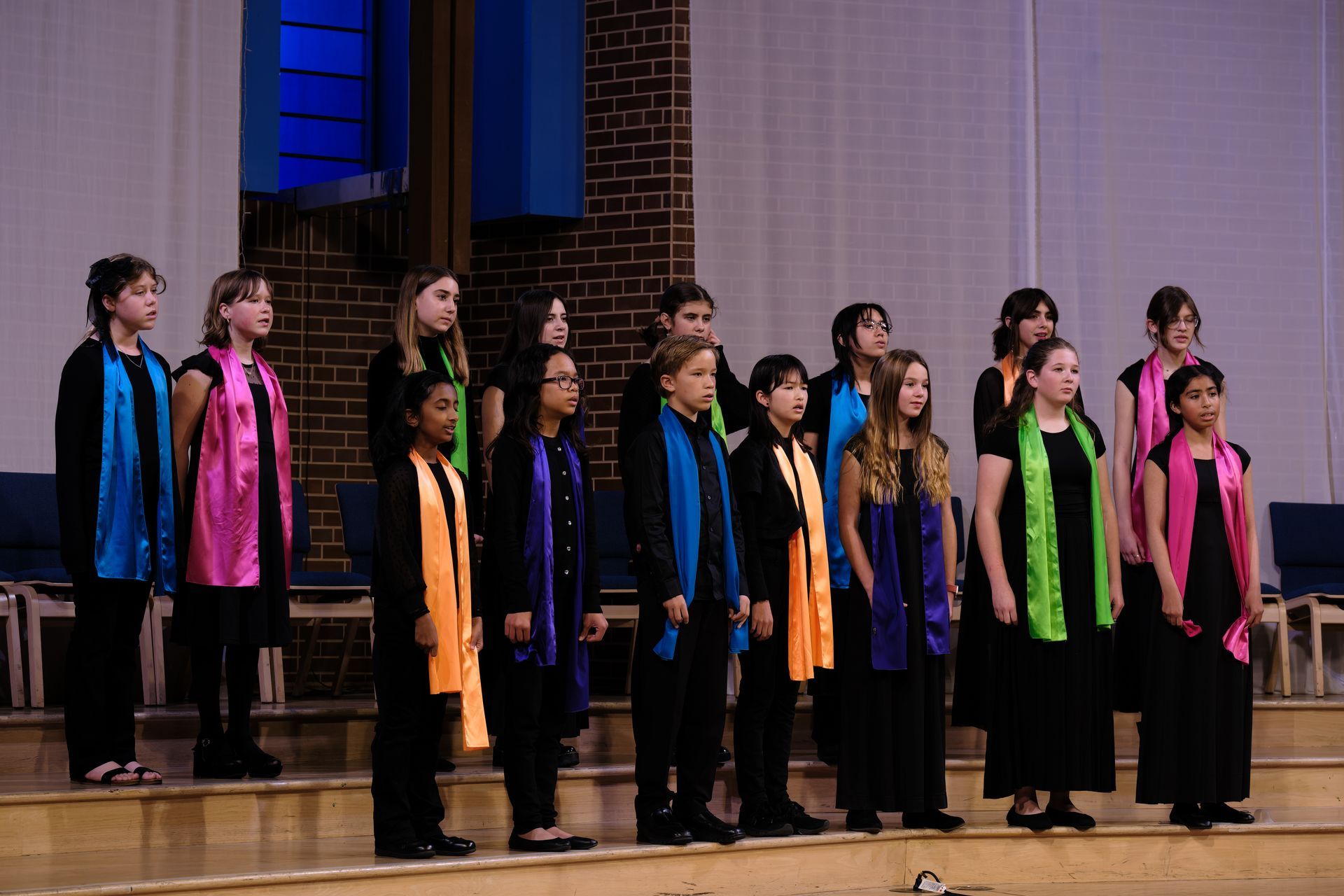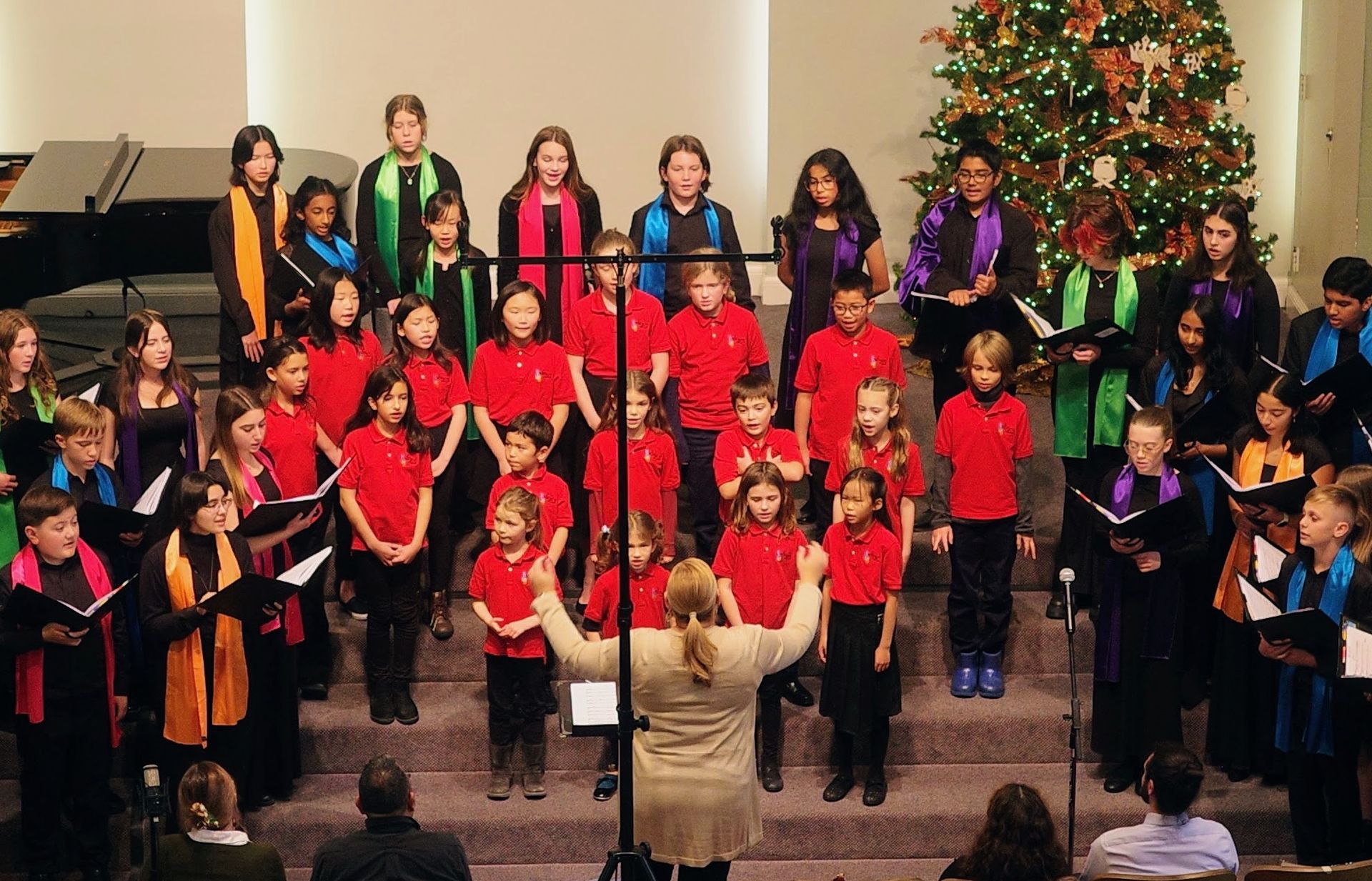Our Program
Vivace Youth Chorus of San José offers developmentally appropriate instruction for youth from ages 5 to 18. Both beginning and advanced singers are encouraged to participate. Need-based financial assistance is available to keep our program accessible to families of all means.
Singers ages 8 and up wishing to join one of our choirs are required to participate in a placement appointment with a member of our artistic staff. 6- and 7-year-olds are automatically placed in our Primo ensemble, and no 1:1 meeting is required. No preparation is needed for this relaxed and friendly session; however, singers in grades 6 and up are encouraged to bring a prepared song. Placements can be scheduled beginning in mid-July for the fall season, and in January for the spring.
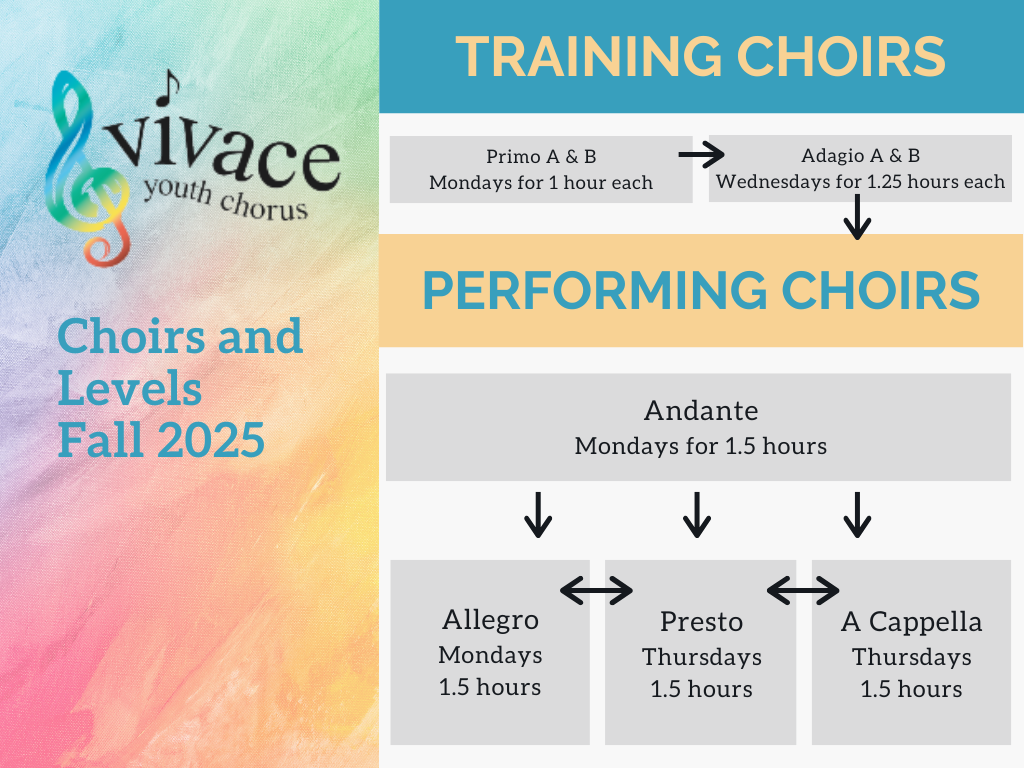
Training Choirs:
Our training choirs, Primo and Adagio, meet once per week and build physical awareness of musical concepts while learning the foundations of good singing. After completing Adagio, students are ready to progress into one of our performing ensembles. Students in the training choirs perform at least twice per year in community-based concerts, for example at libraries, retirement homes, and community events. Training choir students also have the opportunity to sing at least once per year with the performing choirs at Vivace’s larger concerts. Beyond the regular weekly rehearsals, singers in these ensembles may participate in workshops with guest clinicians or local choral festivals as the opportunities arise.
Primo: Beginning level choir for students in 1st grade and above
Using a Kodály-based theory program, students are introduced to musical concepts of rhythm, tempo, pitch recognition, and solfege. During active and playful rehearsals, children internalize the rhythms of music and learn to develop musical memory. Singers are introduced to musical concepts of loud, soft, fast, slow, pitch recognition, using solfege, and rhythm. They focus chiefly on unison music, but are introduced to the concept of two-part singing through beginning canons.
Singers begin in Primo A and progress to Primo B as their skills develop. Occasionally, students with prior music experience will be placed directly into Primo B. These smaller groups help us to provide individual attention and proper skill development. 5-year-olds or Kindergarten students may be admitted to this ensemble with permission from the artistic staff. Rehearsals are one hour per week on Mondays from 4:30-5:30 pm for Primo A and B combined. If the group is large, it may be split into two sections, one meeting from 4:00-5:00 pm and the other from 4:30-5:30 pm.
Primo singers who are ready to move to Adagio will:
- Understand the 5-note Pentatonic scale in solfege (Do, Re, Mi, Sol, La)
- Be familiar with simple meter and rhythms, including half, quarter, and eighth notes
- Read music using the above concepts
- Be able to sing confidently on pitch
- Maintain healthy singing posture
- Be attentive in rehearsal and performance while watching and responding to the conductor
Adagio: Mid-level choir for students in 3rd grade and above
Singers in Adagio learn music in a wide range of styles encompassing a variety of languages. They learn through ear training, solfege, and sight-reading. At the same time, they develop an understanding of the necessity of breath support, vocal alignment, freedom of tone, and posture for quality singing. Rehearsals continue to include games and movement activities to reinforce concepts and skills. Students learn to read a choral score while working on increasingly difficult canons and two-part music. Emphasis is placed upon being a member of an ensemble and supporting the other singers in the choir.
Rehearsals are 1 hour and 15 minutes per week, and students are divided into Adagio A and B in order to maintain small groups for individual attention and proper skill development. Similarly to our Primo ensemble, singers begin in Adagio A and progress to Adagio B as their skills develop. Classes meet Wednesdays from 4:30-5:45 pm for Adagio A and B combined. If the group is large, it may be split into two sections, one meeting from 4:30-5:45 pm and the other from 5:00-6:15 pm.
Adagio singers who are ready to move into the primary level Performing Choirs will:
- Know the major scale in solfege
- Be familiar with simple and compound meters
- Understand whole, half, quarter, and eighth note rhythms
- Read a choral score using the above concepts
- Be able to sing confidently on pitch and hold a part independently
- Have excellent vocal posture
- Maintain focus in rehearsal, watch and respond to the conductor, and support their fellow singers
Performing Choirs: Advanced levels for students in 6th grade and above
All of Vivace’s performing choirs take pride in working toward accomplished performances of increasingly sophisticated repertoire. Singers participate in two formal concerts each year, in addition to various community performances, collaborations with local musical ensembles, and workshops with expert clinicians. Advanced performing choirs participate in an annual retreat to work with clinicians and build friendships that create an excellent ensemble experience. Selected ensembles have the opportunity to tour outside of the local area every other summer.
Rehearsals for the Treble ensembles overlap, which allows for a wonderful amount of flexibility and collaboration between groups.
Andante
This ensemble is made up of younger unchanged treble voices, typically of middle school age. The repertoire is in two and three parts, covering a large range of styles and languages. Students rehearse 1 ½ hours weekly, and have the opportunity to collaborate with the Allegro ensemble since the rehearsals are in tandem. Students progress from this ensemble to the Allegro, Presto, and/or A Cappella ensembles. This ensemble meets Mondays from 6:00-7:30 pm.
Singers who are ready to move to the upper level Performing Choirs demonstrate:
- Sufficient maturity to do advanced and independent work
- Willingness to work on sophisticated literature, including a wide range of foreign languages and musical styles
- Knowledge of major and minor scales and intervals
- Ability to sing in two and three parts independently
- Commitment to developing their musicianship skill, both in class and independently
- Intermediate level sight-reading skill
- The ability to follow and respond to the conductor
- Support for their fellow students and collaborating musicians
Allegro
Singers at this level enjoy working together on music especially suited to advanced treble voices. Repertoire includes a wide range of styles and cultures, and may divide into three, four, or more parts. This ensemble rehearses 1 ½ hours per week, and may be further supported through additional sectional rehearsals and workshops. Singers in this ensemble also collaborate on occasion with the Andante ensemble, and may be considered for membership in multiple upper level ensembles. This ensemble meets Mondays from 6:00-7:30 pm.
Presto
Singers in this ensemble perform intermediate-to-advanced repertoire for mixed voices in a wide range of styles from many different cultures. This ensemble rehearses 1 ½ hours per week, and may be further supported through additional sectional rehearsals and workshops. Singers in this ensemble also collaborate on occasion with the Allegro ensemble, and may be considered for membership in multiple upper level ensembles. This ensemble meets Thursdays from 6:30-8:00 pm.
Upper level ensembles are expected to:
- Practice independently
- Carry solo and duet parts
- Engage their audience through an expressive stage presence
- Develop a personal understanding of the music they perform
- Sing with blend and balanced tone within the ensemble
- Work together as a group to evaluate the ensemble’s progress
- Commit to achieving the best performance that they are capable of
A Cappella
Singers in this ensemble will primarily perform advanced a cappella arrangements of Contemporary Commercial Music (CCM) in a small ensemble setting. Rehearsing once per week for 1.5 hours, high school-aged singers will develop their skill as a member of an ensemble, along with musicianship, musicality, and healthy vocal production. A Cappella meets Thursdays from 5:00-6:30 pm.
A Cappella singers are expected to:
- Learn and successfully demonstrate solo and ensemble singing primarily in the pop and jazz styles
- Practice independently
- Engage audiences through expressive stage presence
- Develop and maintain positive and productive rehearsal and performance environments
- Develop a personal understanding of the cultural and historical context of the repertoire
